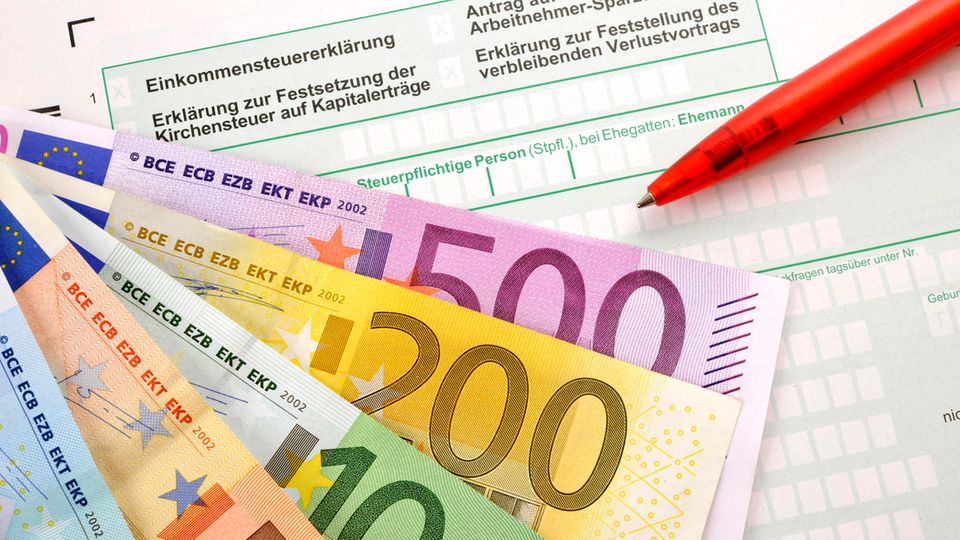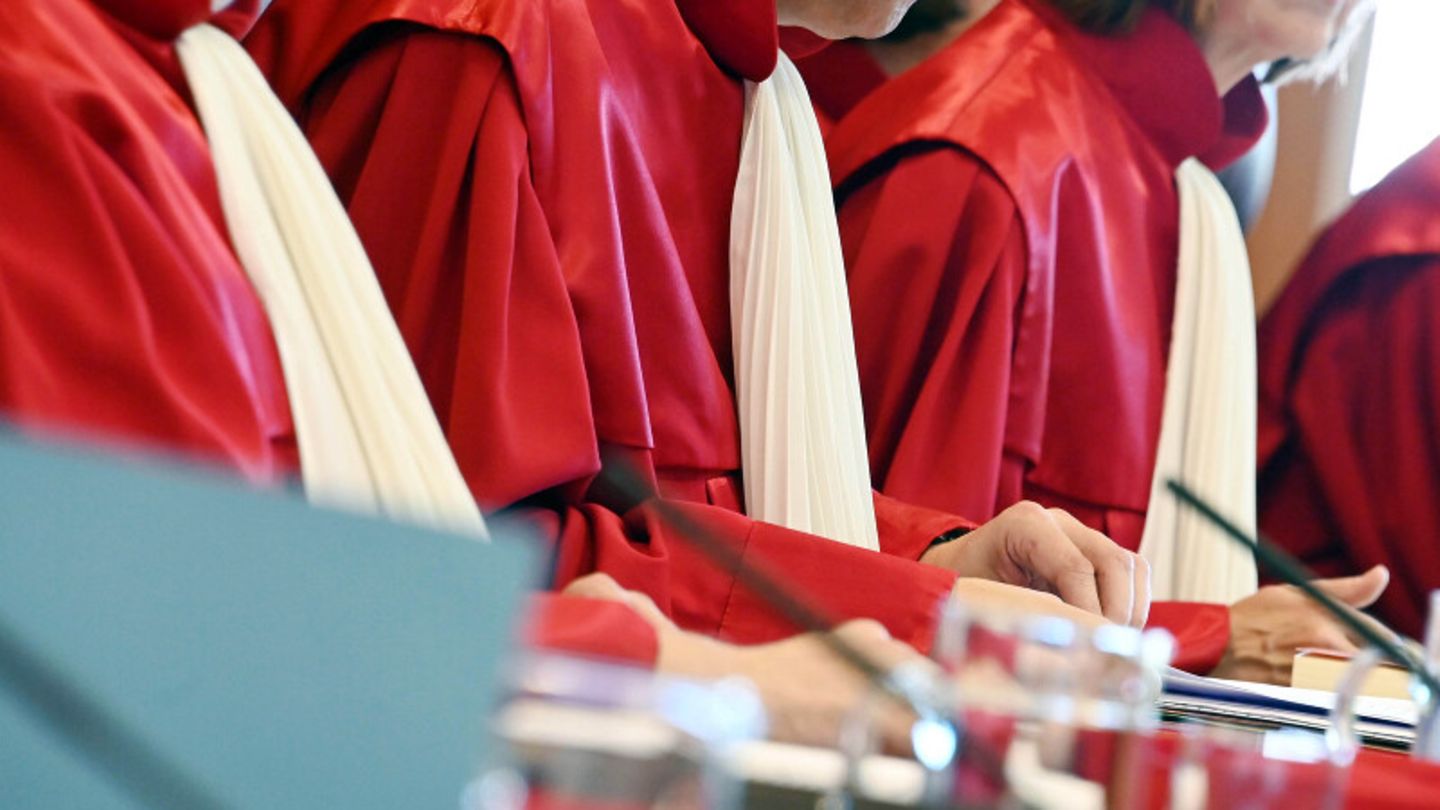Interest rates have been in the basement since the financial crisis. Only in the case of taxes is the interest rate high. That has nothing to do with reality, decided the Federal Constitutional Court. The opposition welcomes the verdict.
In future, taxpayers will have to pay less interest on back payments, but will also receive less interest on reimbursements from the tax office. The Federal Constitutional Court declared the unusually high tax rates of six percent per year unconstitutional in view of the ongoing low interest rate phase, as it announced on Wednesday. The Karlsruhe judges have considered the interest rate to be “evidently unrealistic” since 2014, but subsequent corrections will only be made for the period from 2019 onwards. The legislature will be given time until the end of July 2022 at the latest for a new regulation.
Imbalance since the 2008 financial crisis
There is interest in income, corporation, wealth, sales and trade tax. They become due if a back tax payment or refund is delayed by more than 15 months. In the first case the tax authorities benefit, in the second the taxpayers. The level has remained unchanged at six percent for decades. In the historic low interest rate phase after the outbreak of the financial crisis in 2008, this resulted in a much-criticized imbalance: The interest is supposed to compensate for potential profits that cannot be achieved at this level on the capital market at the moment.
The Federal Ministry of Finance wants to tackle the problem quickly and “together with the highest financial authorities of the federal states quickly make preparations to implement the decision of the Constitutional Court,” as State Secretary Rolf Bösinger said in Berlin. The court created legal clarity and “showed the legislature a resilient scope for action and design”.
Good news tends to be good news for taxpayers
So there is no concrete specification from Karlsruhe for the future level of the interest rate. That makes it difficult to quantify the financial impact. So far, however, the state has made good business with the interest income from back tax payments. In a few years the difference between the back payment and the reimbursement interest was more than a billion euros.
So for taxpayers, the decision tends to be good news. Those who have had to pay back since 2019 should in many cases get part of the interest back. Anyone who has received tax reimbursement may have to partially repay the lavish interest. Companies are primarily concerned with larger sums. How many notices are affected was initially unclear.
The Federal Fiscal Court had already questioned high interest rates in 2018
For the period from 2014 to 2018, the judges of the First Senate left the disputed provision in force. Here the legislature is not obliged to retrospectively create a constitutional regulation. In the years up to 2013, general interest rates had already plummeted. At that time, however, the fixed interest rate was “still in the right proportion,” it said.
The Federal Fiscal Court also questioned the constitutionality of the high interest rates in 2018. Because of these decisions and the unclear legal situation, the tax offices have only set the interest rates provisionally since May 2019. This means that the notices can now be changed retrospectively. In addition, the authorities had temporarily waived the collection of interest in certain cases.

The taxpayers’ association welcomes the decision
In Karlsruhe, two companies had sued that, after a tax audit, were to pay six-figure interest. Because the period between 2010 and 2014 was involved, only one of these constitutional complaints was partially successful.
The Association of Tax Payers (BdSt) welcomed the decision. “The interest rate must be reduced to significantly less than half of the current interest rate,” demanded President Reiner Holznagel. He also advocated a flexible solution.
The Federation of German Industries (BDI) also considers “a regulation that reacts to changes in interest rates” to be sensible. Companies are now finally getting more planning security, said Managing Director Joachim Lang. The German Chamber of Commerce and Industry (DIHK) also called for the tax audits to be accelerated. The companies often receive a final tax assessment many years after their tax return.
Opposition criticizes government
The FDP reiterated its demand to structure the interest rate dynamically and to link it to the base rate. “The tax office is neither a savings bank, nor may the interest become a second tax,” said the financial policy spokesman for the parliamentary group, Florian Toncar.
The top candidate of the left in the federal election, co-party leader Janine Wissler, told the dpa that it had long been clear that the high interest rates were not justified. “Nevertheless, the federal government shamelessly reached into the pockets of taxpayers in the event of late payments.”
The Greens in the Bundestag accused the Federal Government and Finance Minister Olaf Scholz (SPD) of having overslept to take action early on. “It will be a huge effort for the tax authorities,” warned Lisa Paus, spokeswoman for financial policy.
David William is a talented author who has made a name for himself in the world of writing. He is a professional author who writes on a wide range of topics, from general interest to opinion news. David is currently working as a writer at 24 hours worlds where he brings his unique perspective and in-depth research to his articles, making them both informative and engaging.




